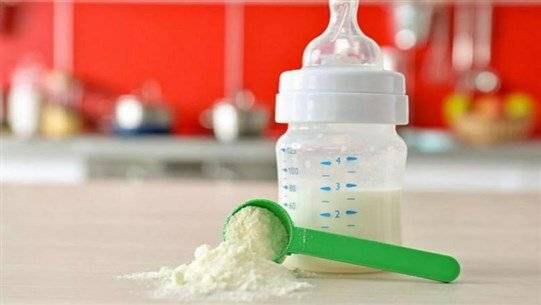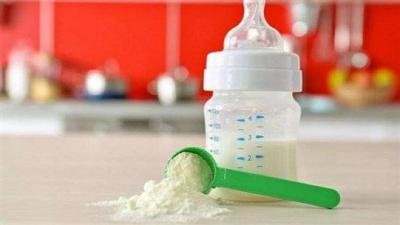We have entered an era of searching for baby formula. Welcome to the Republic of Corruption and Monopoly, where children are left without milk, parents knock on every door in vain, and mothers are lost wondering how to feed their children. The milk has run out, and there are no signs of it becoming available in the foreseeable future. It is no surprise that the search for rentable wet nurses has started these days, as recorded in the Nabatiyeh area, where many parents are looking for wet nurses to avoid their children going hungry. Some have resorted to purchasing "informally sourced" milk, which has had negative effects on the child's health, causing diarrhea, fever, malnutrition, and more. Only the Ministry of Health bears the consequences of what is happening to Lebanon's children, whose lives depend on milk.
Children's health is at risk, with unknown diseases starting to affect them, and numerous health symptoms being recorded, pushing them towards hospitals, where the cause is linked to malnutrition. With milk unavailable and vitamins costing a fortune, what is the situation for children and parents these days? For the past few days, baby formula has been out of stock, and it may not be available again until subsidies are lifted. This is an era of value collapse, as the most dangerous crisis is the loss of infant milk from day one to year one, solely because it is still subsidized at 50%, forcing parents to fall prey to traders who press in every direction to achieve further profits at the expense of infants today.
Since yesterday, Wasim has been futilely searching for milk for his approximately one-month-old daughter, having knocked on the doors of every pharmacy. The only response he receives is "out of stock," which leaves him confused: "What do I do? How do I feed my daughter?" This question has overshadowed all parents recently, amid rising anxiety about what would happen if milk remains unavailable for more than a week.
Pharmacist Mohamed al-Hajj does not hide the severity of the crisis, stating that it is the most difficult one, as baby formula is hostage to the Central Bank of Lebanon, which refuses to sign the necessary funds. He also points out the role of companies monopolizing the market and withholding milk from children in anticipation of lifting subsidies. Al-Hajj confirms that milk is subsidized at 50% and 50% according to the exchange rate, emphasizing that this crisis is just another tax paid by citizens before the subsidy is lifted. At that point, a tin of milk could cost 350,000 LBP or more, meaning that a family would need 2,400,000 LBP monthly. Can they handle this?
In the past two days, calls have risen urging a return to breastfeeding, as it solves the crisis, plus children receive 100% natural and nutritious milk. This is confirmed by Mariam, who decided to return to breastfeeding after experiencing the hardships of the milk shortage; she found it difficult initially but asks, "Should I leave my child without milk? Should I make him a hostage to monopolistic traders? It is a shame for them to profit from our children's health. They raised the milk price the first time, and we accepted, but hiding it is an unforgivable crime. Where is the law and the state?"
Mariam might be one of the mothers who decided to face the crisis with a natural solution, but Fatima is still looking for milk for her three-month-old son. She arrived in Beirut three days ago, saying, "I may even have to substitute baby formula with any milk for my child, even though I know it could harm him, especially since his stomach may not tolerate it."
Pediatrician Dr. Elias emphasizes the seriousness of the crisis for children, stating that formula types 1 and 2 are completely unavailable, and parents are substituting them with any available milk, even those meant for children ages three and up, resulting in illnesses and malnutrition. He confirms that a significant number of children have been hospitalized in recent days, some with high fevers and others with severe diarrhea, all due to the milk shortage. He insists that children's lives are in great danger because of the lack of baby formula, noting that some parents have resorted to borrowing milk from others to quiet their children.
The equation "No milk" has been established by Lebanon's faltering policies. Neither the Central Bank is willing to compromise, nor is the Ministry of Health ready to intervene to resolve this disaster. The victims are the children, paying the price with their health. Dr. Elias states, "Children's immunity is at zero these days, and malnutrition is reflected in the emaciation of their small bodies, with a three-month-old weighing no more than 4 kg due to the milk shortage. This is the most dangerous health crisis threatening children. Not to mention, according to Dr. Elias, parents are abandoning the essential vitamins for their children due to their high prices."
Thus, children's health hangs in the balance amid the conflicts between the Central Bank, the companies, and the Ministry of Health. Will action be taken before it's too late and Lebanon loses a child due to the milk shortage? Or "does nobody care?"




